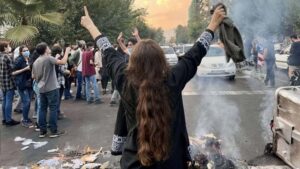
DPA
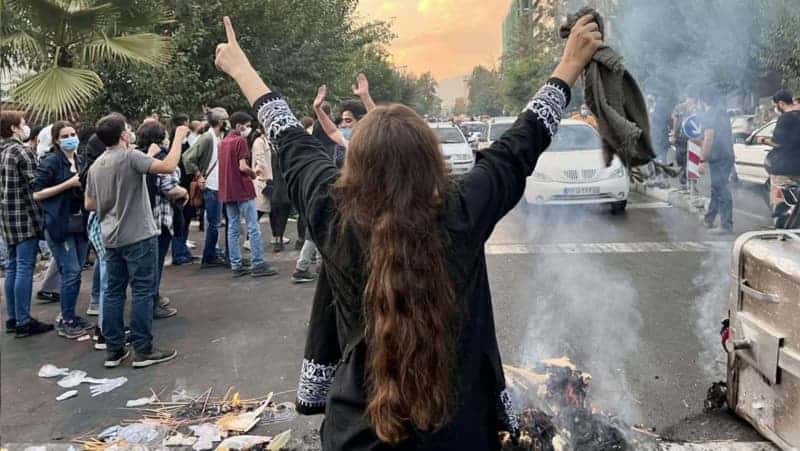
Women set their headscarves on fire in public. Men beat up police officers for filming protests. It seems like the pent-up anger of hundreds of thousands of people is being unleashed on the streets of Iran.
Triggered by the death of a young woman in police custody, protests have spread across the country like a wildfire. The air is filled with fear, but also hope, as the regime prepares to strike back.
Shabnam, a student from Tehran, has been among those taking to the streets for days, to demand change. “I can sit at home and lament how things are, or I can do something about it,” the 25-year-old, who requested a pseudonym, tells dpa by phone.
As many others in Iran and around the world, she had been shocked when hearing the news of Mahsa Amini’s death, a 22-year-old Kurdish woman detained for infringing the country’s strict dress code.
“They can’t beat up, arrest and kill everyone,” says Shabnam, explaining that she feels empowered when taking to the streets with others.
Nationwide, protests broke out after it emerged that Amini had died after being arrested by the moral and religious police during a family visit to Tehran because her headscarf did not fit properly and a few strands of hair were visible.
Numerous critics accused the police of beating Amini, which eventually led to her death. The police have rejected this account.
Taking to the streets at the onset of darkness, people shout slogans evoking the anti-government demonstrations of 2009: “We are not afraid, we are not afraid. We are all together” – those words already reverberated across the country following controversial presidential elections more than a decade ago.
Some 13 years later, Iran has become a different country. Grappling with a severe economic crisis, partly due to international sanctions and inflation, many, even highly educated, young people are struggling to find work. It’s the younger generation in particular that now courageously stands up to criticize the Islamic system.
For many, that doesn’t mean opposing Islam, but the rules imposed by the regime.
“Who in Islam would kill a young girl because of a headscarf?” says Shabnam’s father, who works in a Tehran pharmacy.
Since the Islamic Revolution of 1979, Iran has had strict dress codes for women. For just as long, however, these have been ignored by women, especially in the larger cities – much to the annoyance of arch-conservative politicians.
While he and his wife first worried about their children joining the protests, Shabnam’s father says, the religious couple, who took part in the 1979 revolution that helped topple the monarchy, soon realised how upset many people are. “Desperation is one reason why the regime should be afraid,” he says.
Propelled to the streets in outrage over the young woman’s death, many protesters are now calling for the Islamic regime to be replaced by a secular system, where religion and the state are kept separate.
Shabnam and her family wouldn’t go this far. “Turkey is also Islamic, but women there are free to choose between the veil and the miniskirt,” says the young woman.
Not all protesters are after systemic change, she believes, “but an end to outmoded Islamic criteria that have been imposed on Iranian society over the last four decades.”
The government under arch-conservative President Ebrahim Raisi has tried to appease the population by emphasising the official version that Amini had died after she fainted at the police station due to heart failure and then fell into a coma, as stated by police reports.
But many refuse to believe the authorities, and the young woman’s case has long come to represent the discontent of many Iranians. Even some former conservative politicians have joined their ranks to demand change.
As the days go by, the demonstrators are becoming more and more defiant, with women taking off the headscarves which they are obliged to wear in public by law, while others set dustbins on fire, chanting slogans like “Women, life, liberty!” or “Death to the dictator,” referring to Iran’s religious leader Ali Khamenei.
It had always been considered unlikely that the regime would leave such blatant criticism unanswered.
The authorities imposed a wide-ranging internet blackout to prevent the protesters from communicating with each other, with many social media outlets blocked, and state media reports that they’ve been organized by foreign agents.
Meanwhile, hundreds of people have reportedly been arrested, and at least 17 people were killed during the first week of protests, according to official numbers, while local media have reported this figure to be more than double, including fatalities both among demonstrators and security forces.
Despite the pressure from the population and the international community in light of the violent crackdown on the anti-government rallies, experts in Tehran doubt that the government will make concessions any time soon.
The headscarf rule isn’t just any law, but part of the ideological principles of the Islamic Republic, explains a university professor. Meanwhile, supporters of the system fear a domino effect should the state move to allow women to choose their own clothing.
Shabnam also doesn’t believe that the international community can, and will, do much to help, besides showing solidarity.
But she’s not giving up hope that political reform and change are possible. “Now’s not the time to be afraid.”
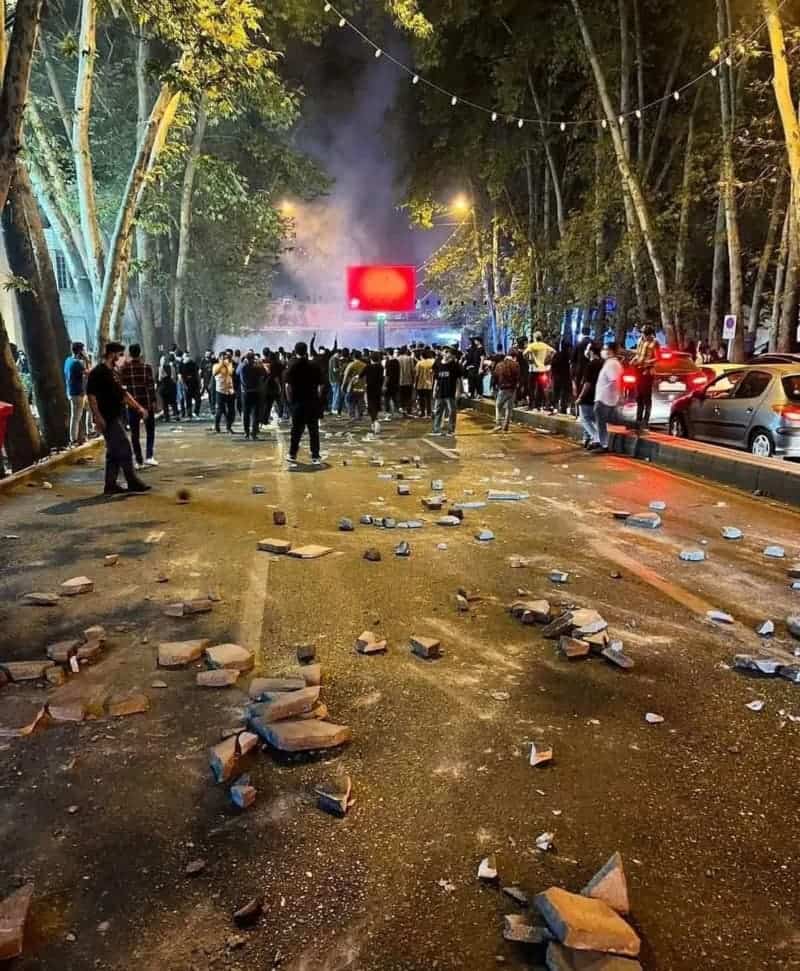
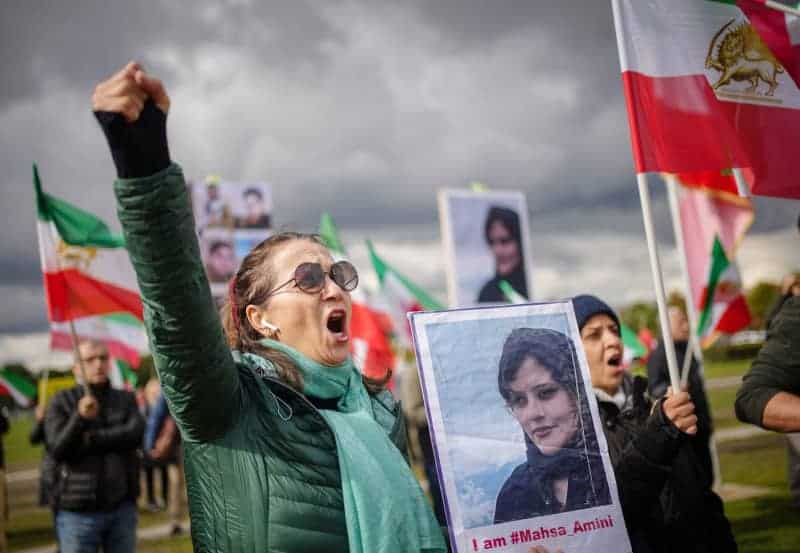
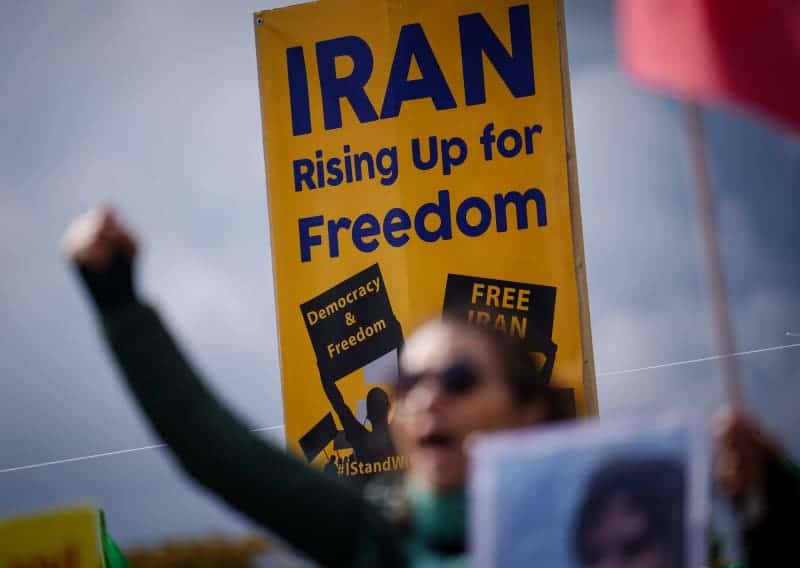


Recommended Comments
There are no comments to display.